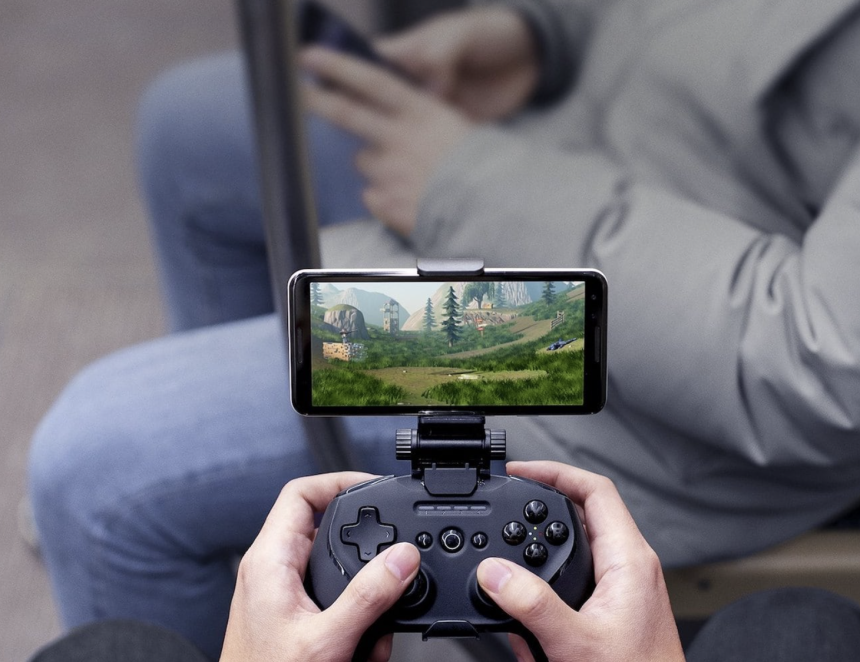A lot of gamers, particularly those who are older, are still waiting for college sports video games to return to shelves (or in our current world the virtual stores). With name, image, and likeness in full swing, the return of college football video games is highly anticipated.
The same can be said for college basketball, though there are no plans for that game. It is a shame because imagine the March Madness bets with the dorm or fraternity party tournaments that would take place at some of the major college campuses.
But while gamers wait for those games, there are a lot of other titles that are very competitive. The reality is sports games are in the minority when it comes to popularity, but those may be some of the most competitive games.
Gaming’s growth
When Al Gore invented the internet (I’m showing my age with this joke), it changed the gaming industry and ensured it would rapidly grow. Before the internet, friends could gather in one room and take turns playing video games in LAN parties. Players could go two or four at a time in teams to play against each other.
But what the internet did was it gave everybody an opportunity to connect. Sure, there were a lot of bad incidents when the internet was developed due to chatrooms and other risky incidents. But it was a boon for the gaming industry.
Players could safely connect over the internet and would no longer need to gather in one spot. Consoles became more affordable and widely produced because of this development. Those half-dozen friends who were gathering in one living room could now all stay home with their own console, controller and a headset to stay connected in a party chat.
Slowly, game developers began focusing on curating online gameplay. While offline modes were more popular through the 2000s, toward the later end of the decade is when online gameplay started to take off with first-person shooters and other games.
What it has blossomed to is competitive play online, with the graphics and gameplay getting better across all titles. There is competition among those developers to attract the attention of the consumer base, and then further secure them by offering microtransactions to either rapidly improve an individual’s skill set or offering a cool appearance. It is even the case in free games.
How and which gadgets help
The era of competitive gameplay has further helped the gaming industry as they are developing different gadgets for gamers. It is part of the reason the industry is bringing in so much money and is able to support professional esports organizations, players, and leagues.
Those LAN parties used to be in one living room with a big boxed television displaying grainy graphics. One of the ways gamers have developed a more intimate experience is by downsizing to gaming monitors and sitting at a desk as opposed to a comfortable couch. These monitors, typically 24 to 28 inches, have far better colors and graphics that best accommodate the latest consoles – Xbox Series S/X, PlayStation 5, and gaming computers/laptops. But these smaller monitors shorten the screen to better see opponents in plain sight or an offspeed pitch in a baseball game.
There are also noise-canceling headphones that are great for those who are playing competitively online, particularly in gun games. Being able to limit sound, particularly if someone lives in a noisy dorm, fraternity or apartment, and focus in on the sounds of the game is an ideal gaming experience.
The aforementioned consoles and gaming computers/laptops ensure the best graphics and processing speeds. It is particularly important to upgrade soon as the older generations of consoles are beginning to be phased out by game and software developers since it has been more than two years with the new technology.
There are other gadgets like improved microphones that increase sound quality, cameras for those who take up streaming and creating content on various platforms, and different controllers that offer a better feel or have buttons in different spots to use. There are also Kontrol Freeks, which can be stuck onto the joysticks on a controller that provide a better grip for precision in games.
Lynn Martelli is an editor at Readability. She received her MFA in Creative Writing from Antioch University and has worked as an editor for over 10 years. Lynn has edited a wide variety of books, including fiction, non-fiction, memoirs, and more. In her free time, Lynn enjoys reading, writing, and spending time with her family and friends.















